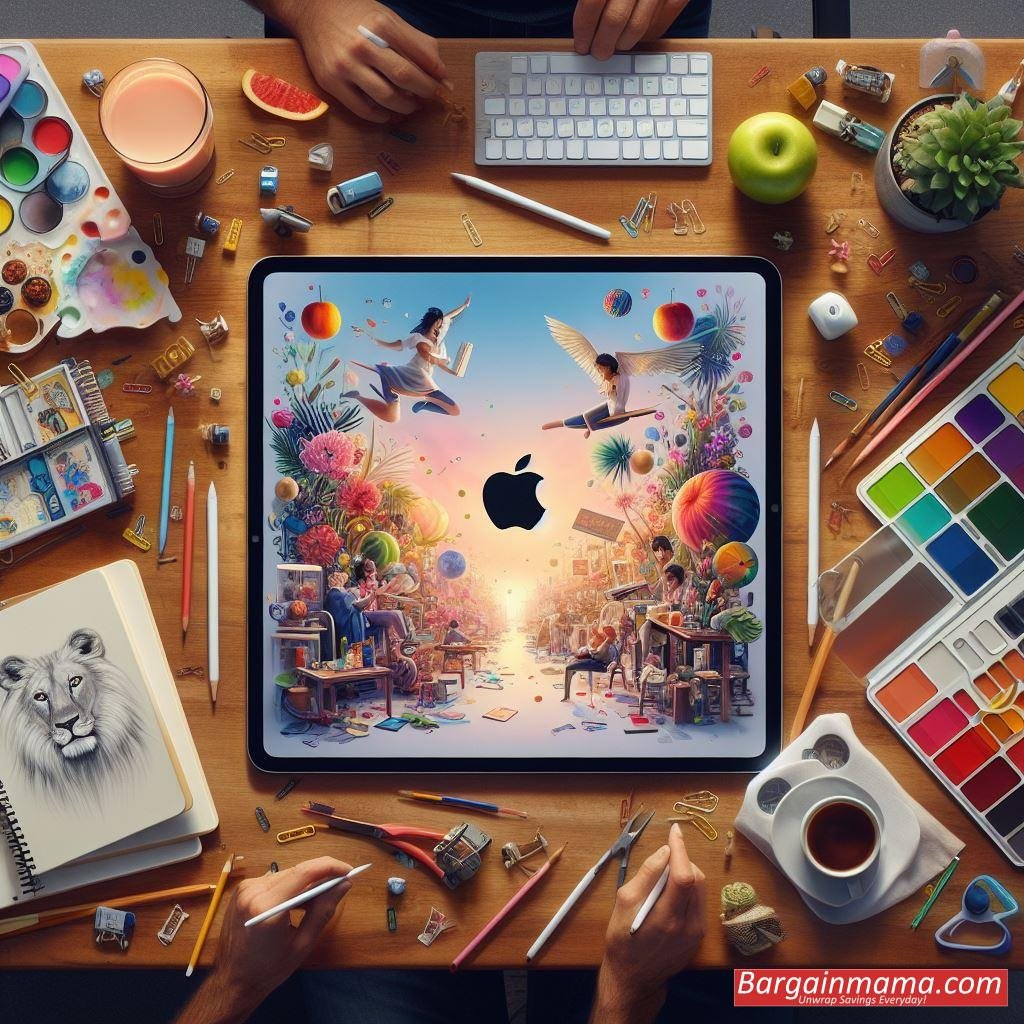Unexpectedly, Apple has responded to the controversy over its most recent iPad Pro advertising by formally apologising. Tim Cook, the CEO of Apple, posted the advertising on social media, but it has drawn criticism for how it depicts how technology affects artistic and creative expression in people.
A massive hydraulic press is featured in the advertisement crushing different emblems of human ingenuity, such as paint cans, musical instruments, and an arcade video game from the 1980s, until a bust of a human head is destroyed. When the smoke clears, Apple unveils the new iPad Pro along with the slogan, “Just imagine all the things it’ll be used to create.”

However, internet users quickly reacted negatively to the advertisement, believing it to be celebrating the demise of conventional creative tools rather than as a celebration of technological innovation. “The symbolism of indiscriminately crushing beautiful creative tools is an interesting choice,” commented one social media user, while “This ad effectively convinced me I need less technology in my life,” was written by another.
Tor Myhren, Apple’s vice president of marketing communications, apologised for the lapse in an AdAge statement in reaction to the growing outcry. “Creativity is in our DNA at Apple, and it’s incredibly important to us to design products that empower creatives all over the world,” Myhren said. “Our mission is to consistently highlight the diverse ways that iPad users express themselves and realise their ideas. We apologise; we feel that this video fell short.”

Although Apple acknowledged the apologies it had sent to AdAge, it chose not to comment more, which led many to conjecture about internal conversations and decisions within the behemoth of a tech corporation.
Apple’s prompt action indicates that it understands how important public opinion is, especially when it comes to creativity and innovation. Companies like Apple need to exercise caution as technology continues to permeate all facets of human existence, including art and expression, to make sure their messaging is understood favourably by their target audience.
Apple continues to be a leader in technology and design, and its products continue to alter and shape the way we interact with the world around us, even in spite of the error with this particular campaign. It’s likely that the business will go above and beyond in the future to make sure that its marketing initiatives are more closely in line with its guiding principles of empowerment, creativity, and innovation.

Apple’s apology calls for businesses to approach advertising with tact and foresight, reminding us of the fine line that exists between technical advancement and human ingenuity. It is the duty of organisations to maintain moral principles and foster an inclusive and motivating culture as the digital world changes.



